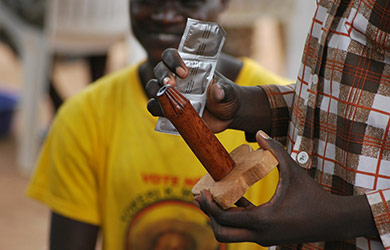Human papillomavirus, commonly called HPV, is a type of STI and the most commonly reported form in the general population. It is possible to contract the HPV infection if you have unprotected vaginal or anal intercourse with a partner who is infected. In addition, the virus can be transmitted through the touching of genitals, oral sex or genital contact even without penetration with minimal risk. Read the following article if you want to know more about HPV and pregnancy.
HPV is a sexually transmitted infection and there are different strains of it. There are some high-risk HPV that can lead to cervical cancer and low-risk ones that causes genital warts to appear as round, flat or raised growths.
HPV and Pregnancy – Effects, Risks & Other Facts You Should Know
When a woman contracts HPV and pregnancy is involved, the combination usually leads to anxiety. If you can relate to this, then there is no doubt that you will worry about having a miscarriage, transferring the infection to your baby, and different other complications. However, you will be glad to know that the connection between HPV and pregnancy complications is generally not proven.
Pregnancy with HPV
There is no reported connection between HPV and premature birth, miscarriage, or any other pregnancy complication. Aside from that, you have a very low risk of passing the virus to your baby. In the event that you are pregnant and you have tested positively for the high-risk HPV’s which are linked to cervical cancer, your doctor is going to monitor you carefully during the pregnancy to check for any changes in the cervical tissue. In some cases, the tissue changes might increase during pregnancy and the doctor will postpone treatment if possible to avoid premature delivery.
Difficulties with Genital Warts
Your doctor will monitor you during pregnancy if you have genital warts to see if they are getting bigger. When you are pregnant, the hormonal changes in your body can cause the genital warts to get larger or multiply and even bleed at times. In some cases, women develop problems which require the doctor to remove the warts before delivering the baby. It’s worth mentioning that there have been instances where the warts multiply at a rapid pace and grow large enough to partially block the birth canal.
Like other issues connected to HPV and pregnancy, the growth of excessive warts is very rare and in most cases they will disappear on their own without treatment. For this reason, most doctors will wait for as long as they possibly can to see if the HPV infection clears on its own.
Childbirth and HPV
The risk of transmitting HPV to your baby is extremely low, but there are documented cases where it’s passed on during childbirth. For most of these rare cases, the virus clears up on its own thanks to the infant’s immune system and will present no health risks. Most of the time, there are no complications related to HPV if a woman with genital warts give birth.
However, you have some instances where the infant will get the infection in the throat area. This is actually a serious condition known as respiratory papillomatosis. If your baby has this condition, regular laser surgery will be required to stop the warts from blocking the breathing passages.
It is important to point out that you can still deliver your baby safely if you have a HPV virus that is linked to cervical cancer.
What you should know if you have no history of human papillomavirus and you are trying to conceive:
The first thing you should know is that you don’t necessarily need to do a specific test for the virus if you are trying to get pregnant. If you have been doing Pap tests on a regular basis, then your doctor would have picked up on any abnormalities and conducted more tests for HPV. Moreover, if you get pregnant the doctor will do a Pap test on your first prenatal visit once your screen is not up to date.
Some additional tests such as HPV testing will be done, especially if you are at risk to having cervical cancer. The doctor might decide to perform a colposcopy wherein a lighted device is utilized to examine the cervix closely for any abnormal tissue changes.
Ways to Cope with HPV and Pregnancy
If you are pregnant with HPV, you will have extra challenges aside from the problems which could potentially affect the unborn baby. Most doctors don’t recommend the removal of any warts that might develop during pregnancy, apart from instances when they become too enlarged and would bleed or cause other agitation, because of the likelihood of the baby contracting a secondary infection. For some women, this might be different from the norm. However, at the end of the day it will come down to the adjustments that are done when pregnancy and HPV are linked together.



